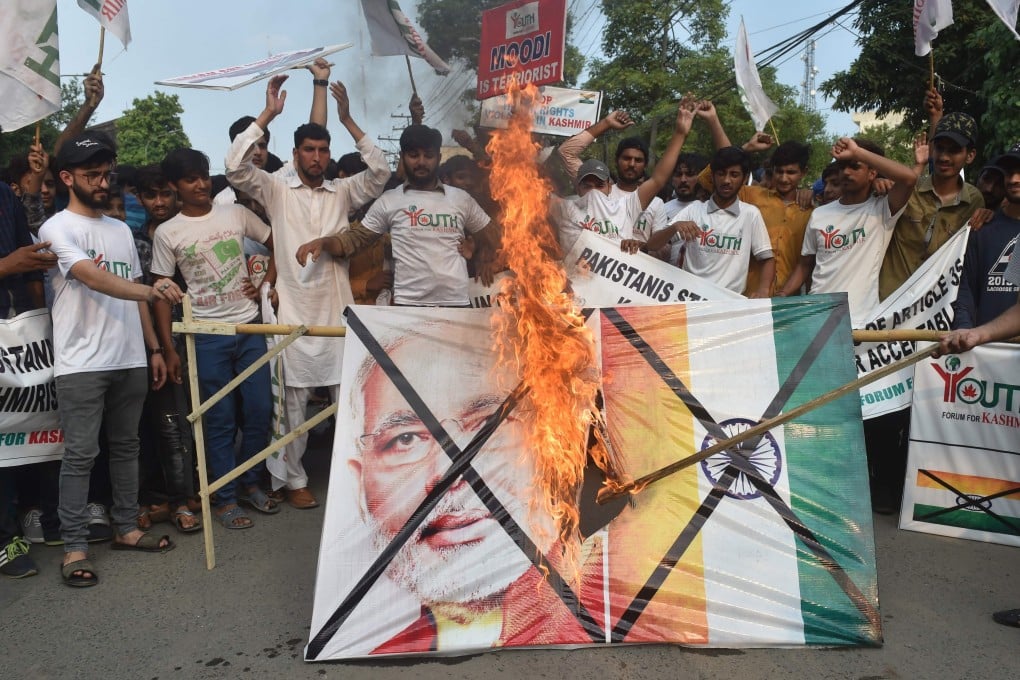Advertisement
Protests erupt over India’s Kashmir move, China voices opposition
- Pakistan’s army has pledged to go to ‘any extent’ to protect Kashmiris in the wake of New Delhi’s revocation of Kashmir’s special status
- China’s foreign ministry, meanwhile, described India’s actions as unacceptable and said they would not have any legal effect
Reading Time:4 minutes
Why you can trust SCMP

Pakistan launched a diplomatic offensive against India’s move to revoke the autonomous status of Kashmir, a disputed Muslim-majority state claimed in full and ruled in part by both the south Asian nations, by calling upon global powers to take notice.
Foreign Minister Shah Mahmood Qureshi wrote to the secretary general of the United Nations informing him about the “critical situation” in Kashmir, while its army pledged to go to “any extent” to protect Kashmiris.
The army’s top commanders met in the garrison city of Rawalpindi to discuss India’s decision, which is also set to exacerbate the long-running bloody rebellion in Kashmir.
Advertisement
“Pakistan Army firmly stands by the Kashmiris in their just struggle to the very end. We are prepared and shall go to any extent to fulfil our obligations in this regard,” General Qamar Javed Bajwa said, in a tweet sent by a military spokesman after the meeting.
Spokesman Major General Asif Ghafoor said commanders “fully supported” the civilian government’s rejection of India’s move.
“Pakistan never recognised the sham Indian efforts to legalise its occupation” of the disputed mountainous region, he added.
Advertisement
Select Voice
Select Speed
1.00x